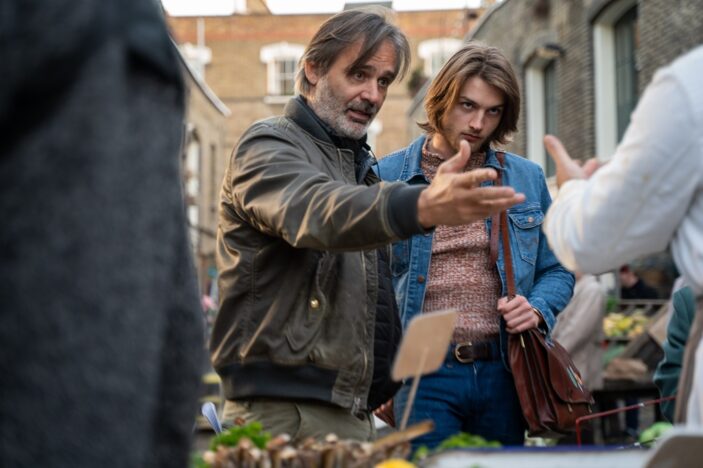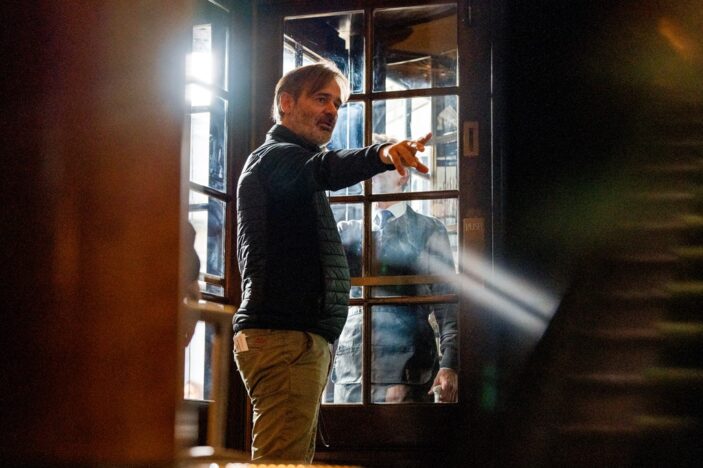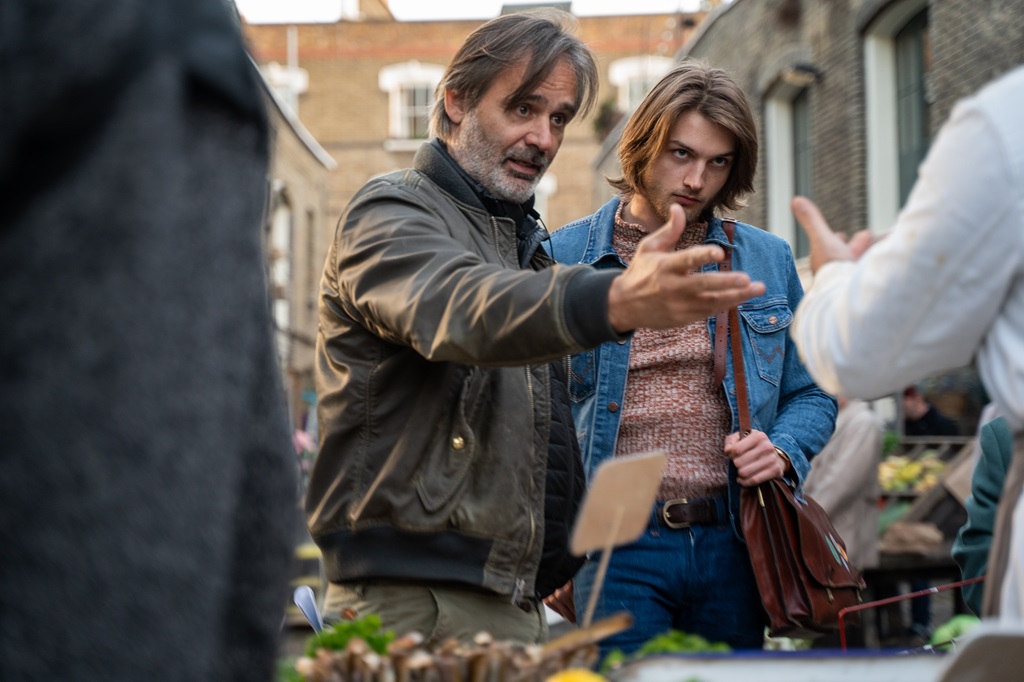
Last time our Peter Gray spoke with director Baltasar Kormakur it was when he put Idris Elba in the biting line of fire of a wild lion in the underrated 2022 survival action film animal.
For his latest outing behind the camera, the Icelandic filmmaker couldn’t be further removed from the dangerous influences of South Africa with his tender romantic drama Toucha love story that took years and miles to create.
Based on the Icelandic bestselling novel by Ólafur Jóhann Ólafsson, Touch is a romantic and suspenseful story that spans decades and continents and follows the emotional journey of a widower trying to find his first love, who disappeared 50 years ago, before his time runs out.
To mark the film’s release in Australia, Peter met with Baltasar again to talk about what drew him to such a project, how the pandemic changed his perception of time, and how the story opened up to him during the editing process.
Hello Baltasar. I spoke to you a few years ago for your film animalSo it’s nice to talk to you again.
I remember. I see so many faces in press work, but I remember you.
I have a feeling everyone will watch this Touch as something different for you, but that is mainly in comparison to your American work. I feel that your earlier films are more in touch with Touchand your theatre work. Was that the appeal of making this film? Something that was different and yet familiar at the same time…
Yes. The appeal was to tell a story that I hadn’t been able to tell yet. To be honest, in Hollywood, I don’t get sent scripts like that. So you make them up yourself, you know? And I’m multifaceted. My career has been instinctive and project by project. I never think, “Oh, I have to do this and that…”, I just choose something that I have a connection to.
Even with a project like animal. I was a lion fan since I was a child. I was on my way to Africa and thought there are so many things to discover there that I would like to do that. In the case of TouchI have wanted to tell a love story for some time. I have done Shakespeare’s Hamlet twice and all sorts of things in the theater, and my second feature film, The seais a family drama, but it was a very different kind of love story. It was more of a variant of romantic comedy. A bit of a black romantic comedy, if you can call it that.
With Touch I wanted to tell a more sincere story. A more honest story. (To) reflect on my own relationship with love over the years. And what was most important to me was the need for closure, something that weighs on you quite a bit as you get older.
I feel like the pandemic has opened up so much for people. It’s kind of ironic that we were so closed off and yet it has opened up our relationships so much more. In TouchYou have this character that grieves but also has hope. There is always more to life.
And I learned that when I went to a psychiatrist (laughs). It’s never too late to save a relationship. You think that maybe there were things you were angry about when you were younger, and when your parents get old, do you have much time left? It’s not about time. When you’re 80, it’s still worth it, you know? I think we often look at it as if it’s too late. It’s never too late. Life is now!
And I liked the idea of this character being unpredictable in his choices. When he’s young, he does things like leave school and get a job in a Japanese restaurant. And it’s gentle, without coercion. When we’re young, we get into strange situations, but after the trauma of this character being ripped away from the love he was deeply in love with, he just shuts down and goes home. The adventure ends in his life somehow. He marries a beautiful woman, but he knows she deserves better than him, you know?
He never really lived a full life and now he’s a younger version of himself. For example, he gets tattoos, something he would never have done 50 years ago. And I think that’s great. When we become fathers or mothers, we sometimes tame ourselves, I think. But he wants to be ‘himself’ and I think when people get the chance to start over, they have new ideas about what it means to be an adult.
I also think it’s about coming to terms with our mortality in some way.
It’s almost like doing a little countdown to the end of the world, you know? Let’s just fucking celebrate! But I love the fact that the pandemic was so abstract in the beginning. We went into a store and had to wait in the corner because they only allowed 20 people in the store. But now it’s OK. I didn’t want to make a clunky COVID movie.

It is not clumsy, as you say. I liked the scene where he is in the restaurant and all alone, and he is Despite it He is told he is not allowed to make phone calls or do certain things. He is the only one there!
(laughs) How many times have we seen something like that? In Sweden, I went to a shop to buy some cameras and film. I went in, but there was nobody there, and they told me to get in line and take a number. I was like, “What the hell???”
Do you think the structure of the film with the time jumps became more apparent during editing? Or did you always intend for the narrative to jump back and forth as we see it?
We had to tell the story that way. It was written that way. But there was a lot to discover in the editing. And with my fantastic editor (Sigurður Eyþórsson) we worked for a long time and it was so much about balance. We tried different things. The first act was a bit tricky to get right because you want to get (the audience) going but at the same time you want to introduce these characters and have fun with it. Some things, some really beautiful scenes, had to go, but in the end the story was told in the most economical way possible. We had time to let the camera work on the faces of these characters. It’s about the little details and smiles and half-smiles in the moments when things are burning between the lovers. It’s about all the things that are left unsaid.
Did you find that one of the biggest challenges in storytelling was figuring out what was most important? Or was it, as you said, those little moments for the characters that made you choose that narrative style rather than exposition?
I think I was pretty clear from the beginning, but when you started doing those scenes and when I started taking out some of the dialogue – because you tend to write more than you actually need – I saw the freedom for the actors. Sometimes dialogue can disrupt the chemistry of what’s actually happening, so you need those moments for the actors to reflect on each other.
Touch will be in selected Australian cinemas from August 22, 2024.

